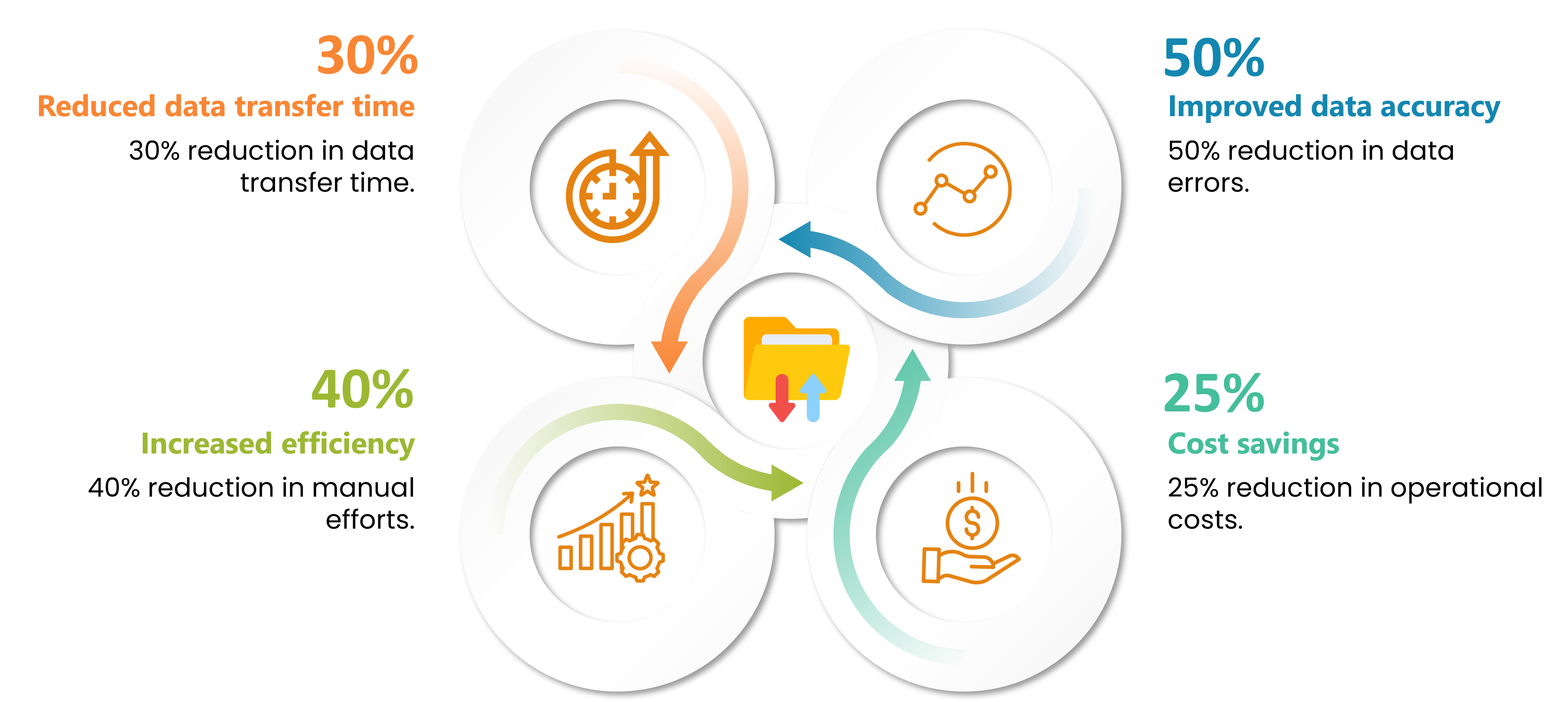Elevating Healthcare Operations with Microsoft Power Platform
Business Problem/Scope of Work
Business Solution
The Educational Services company developed a Candidate Data Transfers framework to address the challenges faced in managing the transfer of candidate registration and test data. The framework aimed to improve the overall efficiency of the assessment process by providing a comprehensive solution that streamlines the data transfer process.
The framework featured a process with multiple phases and steps, allowing each phase to be configured at the level of the test program.
It also supported multiple test programs within the same deployment, had the ability to schedule unattended automated execution, provided internal web monitoring and control UIs, used APIs exposed by other components, limited direct access to other component databases, and processed multiple candidates simultaneously, to expedite the transferring process.
Technical Solution
Technologies/Skills Used
Customer Success Outcomes

In conclusion, the implementation of the Candidate Data Transfers framework for Educational Testing Services resulted in significant improvements in several key areas. The ability to onboard new customers, ease of maintenance using AWS monitoring services, and improved performance serving 190K concurrent users led to the expansion of the company's customer base, improved ease of maintenance, and better service for students. These outcomes demonstrate the effectiveness of the technical solution and the benefits that it brought to both the company and its customers.
Latest Case Studies
Our Case Studies

.jpg)
.jpg)
.jpg)
.jpg)
.jpg)
.jpg)

.jpg)
.jpg)
.jpg)
.jpg)
.jpg)
.jpg)
.jpg)
.jpg)
.jpg)
.jpg)
.jpg)
.jpg)
.jpg)
.jpg)



.jpg)


.png)
.png)
.jpg)

.jpg)
.png)
.png)
.png)

.png)
.png)
.png)



.jpg)

.jpg)


.jpg)



.jpg)


.jpg)





